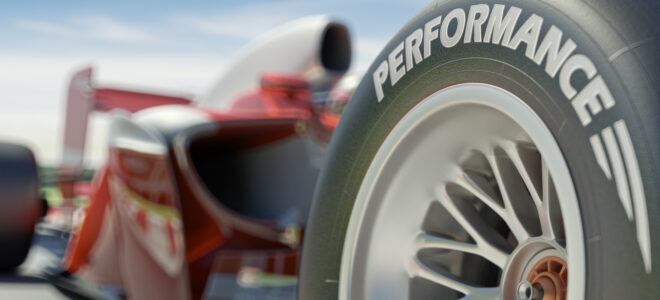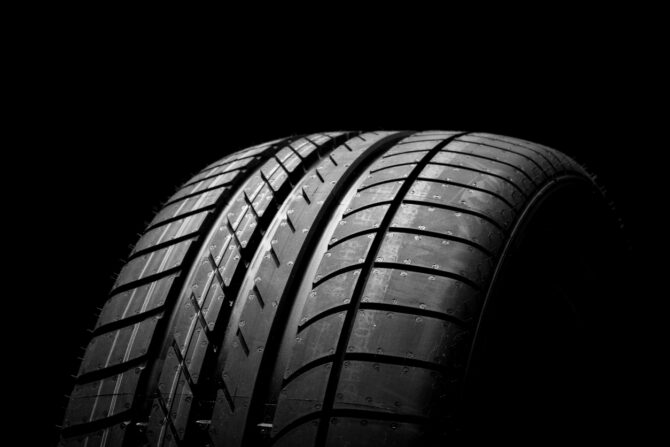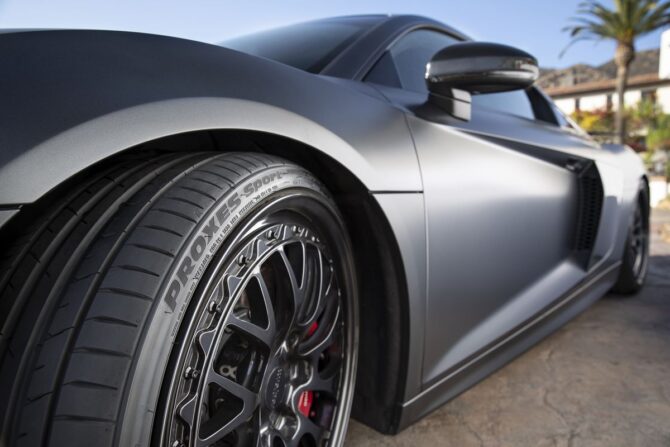
Performance tires are an important part of owning a high-performance vehicle or one you have upgraded. These tires are easy to find, such as through goodtirecalgary.ca. But how do you find the best performance tires for your particular vehicle?
What are performance tires?
Performance tires are tires specifically designed for better handling response, traction and speed. They are able to maintain better vehicle control in both wet and dry conditions. With these tires on a performance vehicle, you have a more thrilling driving experience of responsiveness, traction and precision.
Are these tires right for me?

Brand new, high performance summer tire. http://www.tomasworks.com/dusan/CARS&TIRES.jpg
If you are unsure whether performance tires are something you need, consider your vehicle and how you drive it. What do you expect from your car? Reasons, why performance tires are a good fit for your vehicle, include:
- You want precise handling with better road grip and responsiveness
- You are not bothered by changes in gas mileage, tire lifespan and ride comfort
- You do not drive to just get to your destination, but drive for the experience of being behind the wheel
It is important to know that tire repair is not always possible on performance tires, like standard tires. Instead, you face having to replace your tires after any damage occurs. Punctures can be repaired, but typically only in the tread area, never in the shoulder or sidewall. In many cases, tire repair can void your tire warranty. It is critical that you ask about your chosen tire manufacturer’s policies for speed rating and warranty after repair.
What are tire speed ratings?
Tire speed ratings are letter symbols that tell you how fast the tire is designed to safely travel. You can check your tire speed ratings on trusted tire review sites. For example, if you have Michelin PRIMACY MXM4 tires, then you can check Michelin Primacy MXM4 Reviews. This will really help you with driving in different terrain settings.
These ratings are determined through standardized lab tests, particularly to ensure your tires are right for your vehicle and performance needs. Performance tire ratings include:
- H-rated for speeds up to 130 mph, including winter and all-season tires
- V-rated for up to 149 mph, including all-season and summer tires
- Z-rated for over 149 mph, including summer and all-season tires
- W-rated for up to 168 mph, including summer and all-season tires
- Y-rated for up to 186 mph, including summer and all-season tires
Check your owner’s manual to understand the appropriate tire speed rating for your vehicle. You can also find this information inside the driver’s side door jamb on the tire information label.
Do I need ultra high performance or extreme high performance tires?

Source: mcall.com
If you drive your vehicle on the track or in autocross, you need to equip your vehicle with ultra high-performance tires. These tires work best on a track because they provide extreme grip at speeds between 149 to 186 miles per hour. However, this grip decreases in cold temperatures. You should never use ultra high performance tires below 45 degrees Fahrenheit. Often, they do not perform well in rain or standing water, either.
You should not use ultra high performance or extreme high-performance tires on a daily-use vehicle. The best option is to maintain two sets of tires, one for the track and one for daily driving. This helps you avoid pricey tire replacement and extends the life of your costlier high-speed tires.
How to Find the Best Performance Tires
The best way to find the best performance tires for your car is to go directly to tire experts. They have the appropriate knowledge and resources to help you get informed about your particular performance vehicle’s options. But you should follow some guidelines whenever buying these tires. These guidelines include:
- Ensuring your tire choice meet your vehicle manufacturer’s recommendations
- Use four tires with the same speed rating
- Remember that road conditions differ from controlled lab testing environments where speed ratings are assigned
Never expect your car to deliver performance without the right tires. Talk to a technical expert to help you find the right set based on your unique vehicle and driving condition needs.
6 Important Things to Know When Shopping for Performance Tires

Source: pexels.com
Performance tires are the best way to speed up your vehicle. But you should consider six important tips when shopping for your next set:
1. Performance Is Nothing without Good Tires
Sticky performance tires can provide your vehicle with an additional 50 or 100 horsepower over standard tires. If your tires slip, your vehicle cannot apply its power to cornering and acceleration.
2. Tires Come First
To improve your vehicle’s cornering, buy performance tires first. If these do not help with getting around the corners, then consider spending more on engine and suspension upgrades.
3. Performance Is Not Cheap
Performance tires are not for the budget-conscious. For improved grip, wet surface handling and other benefits, you must be prepared to spend more money over standard tires. Repair and replacement costs are also higher. However, performance tires provide an exhilarating driving experience you cannot enjoy with run-of-the-mill tires.
4. Performance Benefits Your Vehicle, Overall
Having performance tires on your vehicle enhances its overall performance. These tires are not just about speed.
5. Get Acquainted with the Language of Performance Tires
Before shopping for the best performance tires, get to know the associated jargon. At the very least, learn about letter speed ratings and what these mean, so you can decipher the code when making buying decisions. Also, understand the differences between performance, ultra-high performance and extreme high-performance tires.
6. Watch for Overrated Statistics
Performance tires bear ratings provided by the manufacturers. These ratings come from the tiremakers’ comparison to reference tires and are meant to specify tread wear, traction and temperatures. Performance tire buyers typically look for AA traction, A temperature and 400 rating for treadwear. But be aware that ratings can be unreliable. Rely on the input of a tire expert and use these ratings only as initial disqualifiers.



